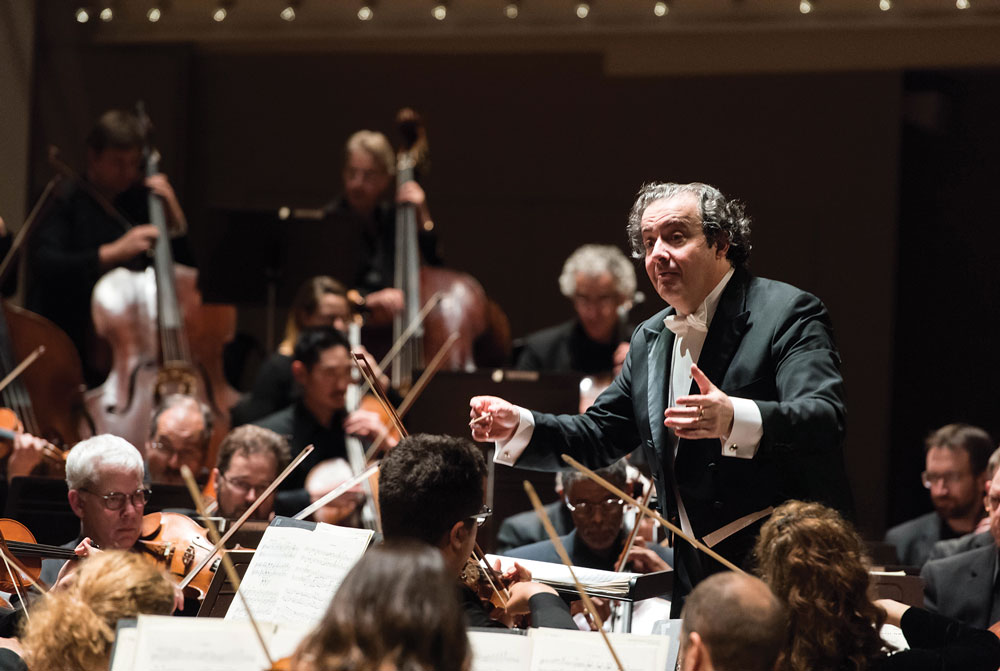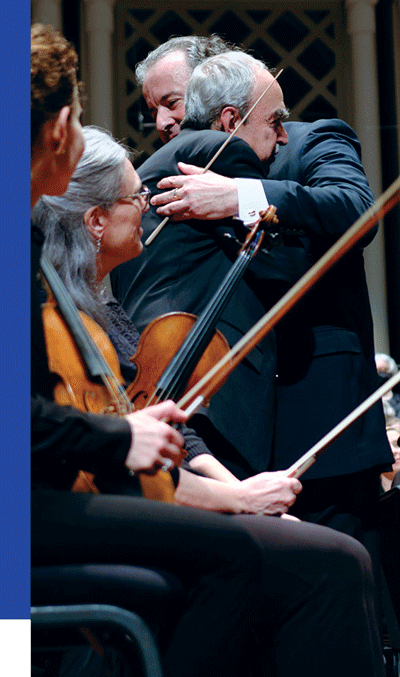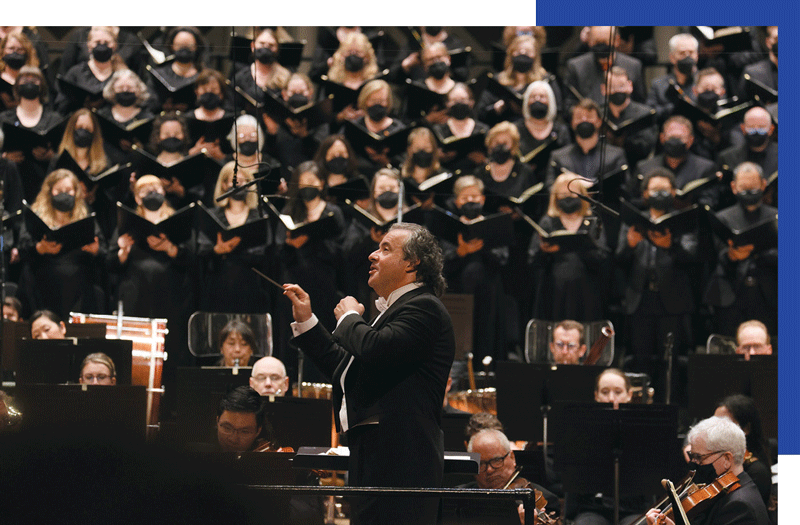
Celebrating Juanjo Mena
by David Lyman
It’s time to say goodbye.
After six years as Principal Conductor of Cincinnati’s May Festival, Juanjo Mena will step away at the end of this year’s Festival.
There’s no conflict behind the decision, no sense of dissatisfaction. Remember, when James Conlon left the May Festival as Music Director in 2016, a new artistic structure was put in place. Instead of engaging music directors for open-ended tenures—Conlon held the position for 37 years—the Festival would be led by a principal conductor with a three-year contract.
“The idea was that by bringing in a new principal conductor every few years, we could more effectively encourage innovation,” says Steven Sunderman, the May Festival’s Executive Director. And if things went well during the initial term, that conductor might be re-engaged for an additional three years.
When he was approached about the position, Mena was initially hesitant. His position as Chief Conductor of the BBC Philharmonic, combined with an extensive guest conducting schedule, was demanding.
“I didn’t think it was a good moment for me,” Mena recalled at the time of his appointment. “But there was a new hall. (The renovated Music Hall.) And Robert Porco—he is a wonderful man to work with—I had to consider it. You know, all my life I have worked with symphonic choruses. They are my great love.”
Besides, he relished the idea of stepping into a choral festival with such a long and distinguished history.
“They told me that my first parameter was that I should take risks,” Mena said when he was introduced as the Principal Conductor. “I had to respect the past. But I was to make something new in Cincinnati.”
And, reflecting on the past years, Sunderman is confident that is precisely what Mena’s legacy will be to May Festival audiences.
“Juanjo has been fantastic,” says Sunderman. “He embraced the regional choral scene. He is the one who championed the creation of the May Festival Community Chorus in 2018 and created community showcase concerts that brought choirs from all over the city to sing at Music Hall in one concert.”
That led very directly to the “25 for 25” performances in March of this year, in which 25 local choirs were paired with young composers involved with the Luna Composition Lab, created by composers Missy Mazzoli and Ellen Reid.
“His stamp on the repertoire has really been remarkable,” says Sunderman. “Last year’s program of South American epics, for instance. And the performances of Mark Simpson’s The Immortal. And James MacMillan’s Seven Last Words from the Cross. Those were all new to the May Festival repertoire.”
The result of this reinvigorated repertoire has been an expansion of the May Festival audience, not just in numbers but in demographic reach. That has extended to the Chorus, as well. In the past two years, the group has welcomed 57 new members—more than three-quarters of them under the age of 40.
“We are seeing a whole new generation of singers,” says Sunderman.
Robert Porco, who has led the May Festival Choruses since 1989, finds the changes particularly invigorating.

“In my lifetime, I have seen so much change,” says Porco. “Orchestras used to be all-male, with the exception—maybe—of a harpist or a piccolo player. Today, we have female conductors and music by a whole range of composers,” he says, rattling off a list of recent May Festival commissions, including those by Julia Adolphe, James MacMillan and James Lee III. “It’s all so exciting.”
He has found his time working with Mena especially rewarding.
“Juanjo is such a warm, gracious personality,” says Porco. “And he has brought wonderful music ideas to the Festival.” Equally important is that, unlike many conductors, Mena has also brought a collaborative spirit to the role.
“He is very respectful to me,” says Porco. “After rehearsals, he often approaches me and says ‘What do you think, Bob’ or ‘How are the tempos, how is the balance?’ And then he actually listens to what I have to say. That is really quite unusual.”
Mena wouldn’t have it any other way.
“Conductors are not dictators,” he says. “Everywhere you go, you hear people talk about their musical teams. When you’re a team, you work together. It’s necessary. And here in Cincinnati, I have been fortunate to have a wonderful team. I think I have challenged them with ideas. But this team—this May Festival team—has turned those ideas into reality.
“We gave audiences Bach and Brahms, but we also gave them Mark Simpson and John Adams and Villa-Lobos. It is not enough to open the door to people. When the door is open, it is important to invite them and then not to close the door. You ask me what I will remember about Cincinnati—these are the things I will remember.”
